Markets
Inventory market at the moment: S&P 500 closes at a recent file above 5,600 as merchants brace for June inflation
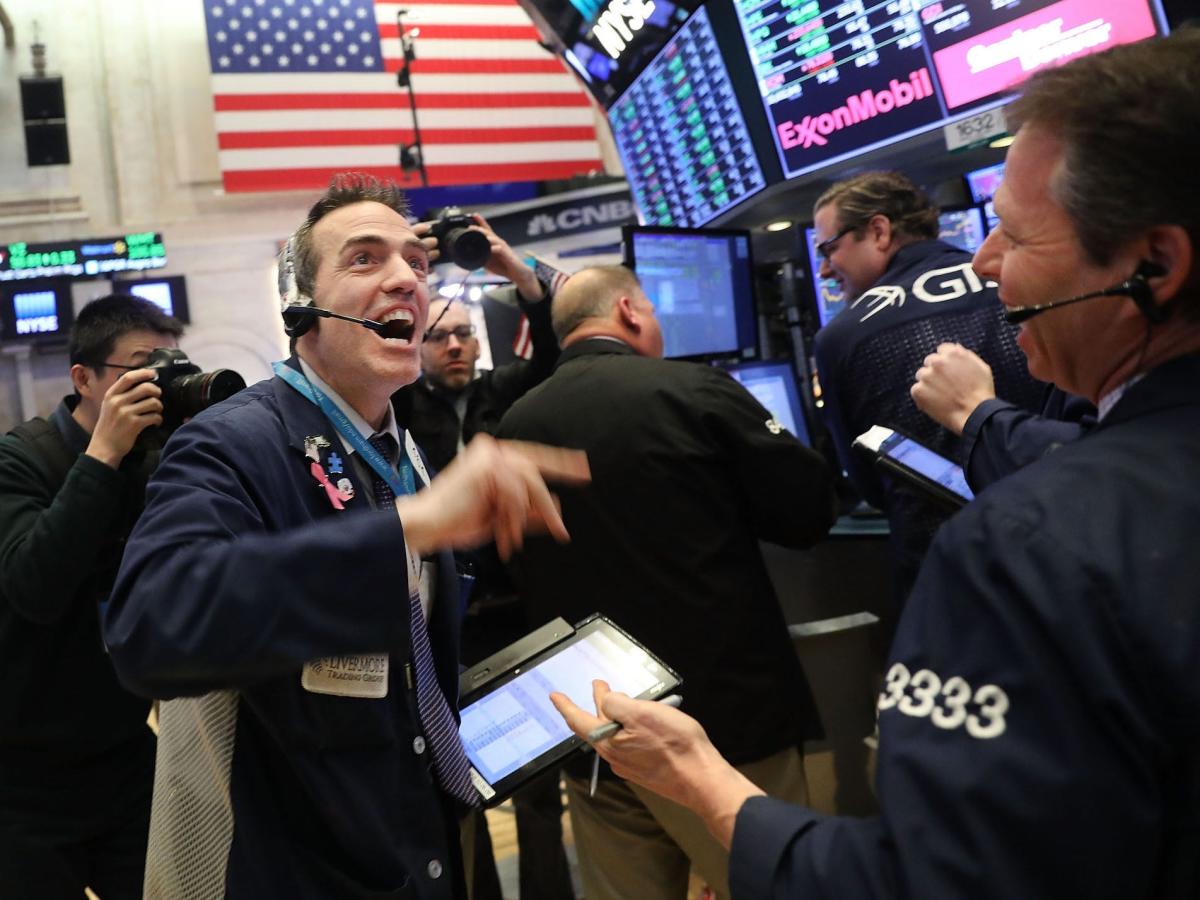
-
US shares climbed Wednesday, with the S&P 500 closing at a file excessive.
-
Merchants are ready on the June inflation report, which will probably be a key enter for Fed coverage.
-
Buyers are anticipating two price cuts from the central financial institution by year-end, per the CME FedWatch software.
US shares rose on Wednesday as merchants waited for upcoming inflation information and took in Powell’s testimony earlier than Congress.
Main indexes ticked increased, with the S&P 500 surpassing 5,600 for the primary time. The Dow Jones Industrial Common soared 430 factors, whereas the Nasdaq was up greater than 1%.
Merchants are bracing for the June inflation report, which will probably be printed Thursday morning. The information will probably be a key enter for central bankers when deciding the trail of financial coverage by the remainder of the yr. Economists predict shopper costs to have climbed 3.1% year-per-year, in comparison with Might’s 3.3% yearly enhance.
A continued downtrend in inflation might give the Fed extra confidence that costs are on observe to fall again to 2%, Powell stated in his testimony earlier than the Senate Banking Committee on Tuesday.
“In mild of the progress made each in reducing inflation and cooling the labor market over the previous two years, elevated inflation isn’t the one threat we face. Decreasing coverage restraint too late or too little might unduly weaken financial exercise and employment,” Powell added in his assertion.
Nonetheless, the outlook for Fed price cuts was little modified. Buyers are pricing in two price cuts by the tip of the yr, based on the , although bets that the Fed might lower charges thrice by year-end rose barely.
Here is the place US indexes stood on the 4:00 p.m. closing bell on Wednesday:
Here is what else occurred at the moment:
In commodities, bonds, and crypto:
-
crude rose 1.08% to $82.30 a barrel. , the worldwide benchmark, ticked increased 0.25% to $85.29 a barrel.
-
edged increased 0.29% to $2,370 per ounce.
-
The ten-year Treasury yield dipped one foundation level to 4.279%.
-
slipped 0.55% to $57,416.
Learn the unique article on
Markets
Ought to You Promote Nvidia; Purchase China? That's What This Billionaire Investor Is Doing
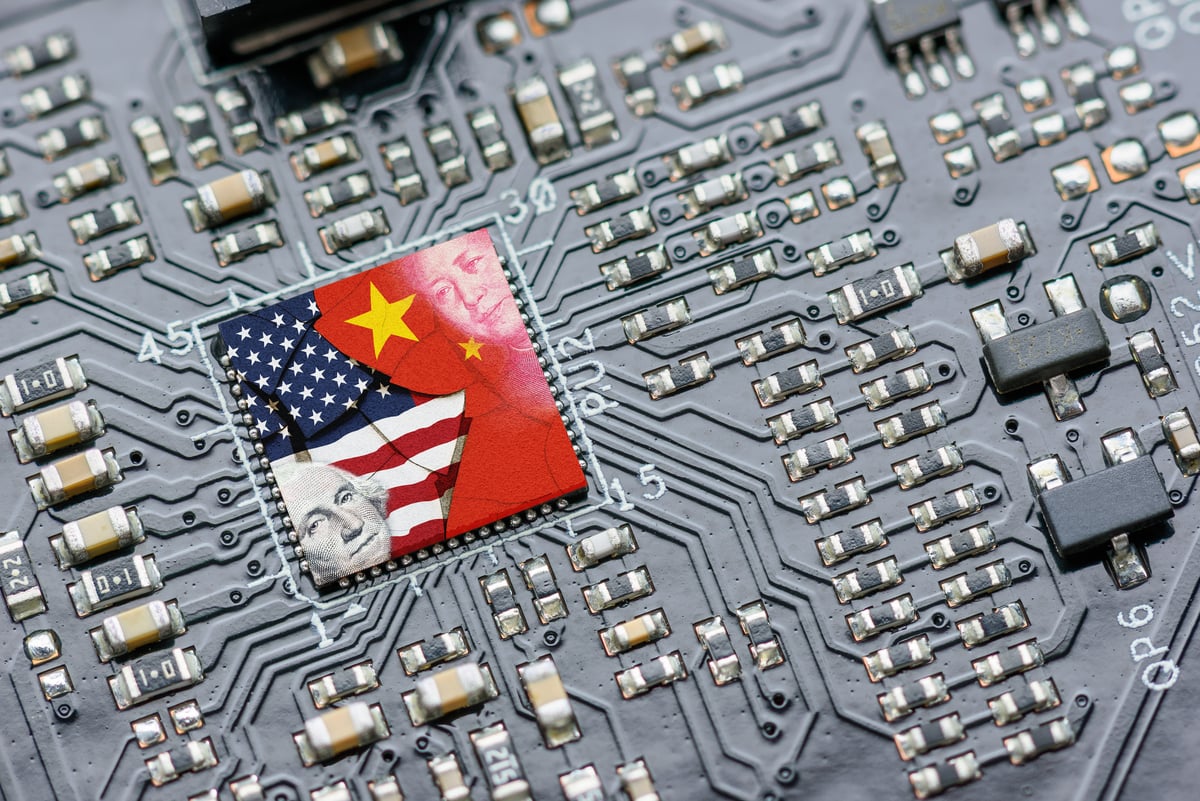
David Tepper, the CEO of Appaloosa Administration, is among the best-known hedge fund managers working in the present day.
Tepper has a web price of $21.3 billion, making him one of many wealthiest folks on the planet. He is identified for, amongst different issues, taking a strategy to investing, zigging whereas others are zagging.
Tepper’s newest strikes are a superb instance of that philosophy. Within the second quarter, Appaloosa Administration dumped shares of Nvidia (NASDAQ: NVDA), arguably the preferred inventory available on the market, and piled into among the most beaten-down, unloved shares accessible. Take a better look.
Out with Nvidia
Tepper’s fund dumped 3.73 million shares of Nvidia, or roughly $450 million price of the highest synthetic intelligence (AI) inventory, in Q2. That wasn’t fairly all of Appaloosa’s stake. Nevertheless it was greater than 84% of it, leaving the fund with simply 690,000 shares, representing roughly $90 million price of the inventory.
The Appaloosa boss hasn’t straight commented on promoting Nvidia, however he is considered one of a number of billionaire managers to take action in Q2. Many appear to imagine that the so-called straightforward cash has been made with Nvidia. Billionaire Stanley Druckenmiller additionally bought the inventory lately, saying that the market now acknowledges what he acknowledged firstly of the AI growth.
For Tepper, the Q2 sale continued a sample. He dumped 3.48 million shares of Nvidia within the first quarter, even because the inventory surged over that interval.
Appaloosa additionally bought plenty of different chip shares in Q2, indicating a broader rotation out of the sector. Amongst these it bought had been Intel and Superior Micro Units. It additionally trimmed its place in “AI shares” like Amazon, Oracle, Microsoft, and Meta Platforms.
Nevertheless, what Tepper was shopping for as a substitute was much more shocking.
In with China shares
China shares have been in hassle for the final 5 years, falling sharply from their pandemic peak. A crackdown on the tech sector by Beijing and a weak restoration post-COVID have mixed to make the sector a laggard.
Actually, because the chart under exhibits, the iShares MSCI China ETF is down 12% during the last 5 years, getting trounced by the S&P 500, which has practically doubled in that point.
Nevertheless, Appaloosa appears to scent a chance in China, because the fund purchased plenty of Chinese language shares in Q2.
Appaloosa added greater than 1 million shares of the Kraneshares CSI China Web ETF (NYSEMKT: KWEB), which counts Tencent and Alibaba as its prime two holdings.
The fund additionally added greater than 660,000 shares of main e-commerce inventory JD.com, 565,000 shares of the iShares China Massive-Cap ETF (NYSEMKT: FXI), and 380,000 shares of KE Holdings, a Chinese language actual property providers firm.
Although Appaloosa really trimmed its stake in Alibaba, that Chinese language e-commerce inventory remained his prime holding, making up 12.2% of the Appaloosa portfolio.
The fund first purchased shares of Alibaba in Q2 2022. He is acquired the opposite Chinese language shares extra lately, largely inside the final yr.
Why Tepper is shopping for China
Tepper hasn’t defined his bullishness on China, however he doubtless thinks the sector is oversold and due for a restoration.
Anybody with a bullish wager on China obtained some excellent news on Tuesday when Chinese language shares soared on shock rate of interest cuts, the federal government’s largest effort to stimulate the financial system because the pandemic.
Certainly, Chinese language shares jumped on the information. The iShares MSCI China ETF was up 9% in afternoon buying and selling, displaying maybe larger upside potential within the sector.
Do you have to observe Tepper’s Appaloosa into China?
The Chinese language financial system remains to be typically weak, however the fee cuts may very well be an indication that the federal government plans to do extra to spice up that financial system. Even so, most Chinese language shares, like Alibaba and JD.com, have put up underwhelming development numbers in latest quarters, which is why the shares have typically lagged.
Tepper and his workforce at Appaloosa appear to imagine that these shares have hit all-time low, and any excellent news would immediate a turnaround. That principle appears affordable, however buyers have been saying that for years, and China has continued to wrestle.
Fee cuts however, buyers nonetheless appear higher off exercising cautiousness in China. Beijing is unpredictable, the financial system is lagging, and new chip export restrictions from the U.S. and others may additional impair its restoration.
Do you have to make investments $1,000 in Nvidia proper now?
Before you purchase inventory in Nvidia, contemplate this:
The Motley Idiot Inventory Advisor analyst workforce simply recognized what they imagine are the for buyers to purchase now… and Nvidia wasn’t considered one of them. The ten shares that made the minimize may produce monster returns within the coming years.
Think about when Nvidia made this listing on April 15, 2005… in case you invested $1,000 on the time of our advice, you’d have $743,952!*
Inventory Advisor gives buyers with an easy-to-follow blueprint for achievement, together with steerage on constructing a portfolio, common updates from analysts, and two new inventory picks every month. The Inventory Advisor service has greater than quadrupled the return of S&P 500 since 2002*.
*Inventory Advisor returns as of September 23, 2024
Randi Zuckerberg, a former director of market improvement and spokeswoman for Fb and sister to Meta Platforms CEO Mark Zuckerberg, is a member of The Motley Idiot’s board of administrators. John Mackey, former CEO of Entire Meals Market, an Amazon subsidiary, is a member of The Motley Idiot’s board of administrators. has positions in Amazon and Meta Platforms. The Motley Idiot has positions in and recommends Superior Micro Units, Amazon, JD.com, Meta Platforms, Microsoft, and Oracle. The Motley Idiot recommends Alibaba Group and Intel and recommends the next choices: lengthy January 2026 $395 calls on Microsoft, brief January 2026 $405 calls on Microsoft, and brief November 2024 $24 calls on Intel. The Motley Idiot has a .
was initially printed by The Motley Idiot
Markets
Institutional buyers extra assured in comfortable touchdown, says Morgan Stanley
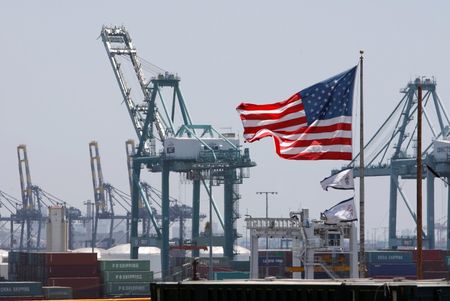
Lusso’s Information — Institutional buyers are exhibiting renewed confidence in a U.S. comfortable touchdown, Morgan Stanley strategists mentioned in a Wednesday observe.
After holding greater than 150 conferences with institutional buyers in North America, Morgan Stanley’s fairness strategists famous a big shift in sentiment towards the comfortable touchdown narrative.
“We sensed far much less hesitancy on the comfortable touchdown narrative than we had noticed by way of the summer time and into/in the course of the current development scare,” the observe states.
The main focus of many investor discussions centered round the best way to place for this situation, with cyclicals and rate-sensitive shares attracting curiosity.
The time period “goldilocks” surfaced incessantly by the tip of final week following the Fed’s 50 foundation level price lower, indicating an atmosphere with average development and inflation.
Buyers had been significantly serious about cyclical exposures, with “the best way to place for goldilocks?” being their main query, Morgan Stanley says.
This shift in sentiment is a marked change from the expansion scares witnessed earlier this 12 months. The Wall Avenue agency had beforehand famous extra concern over the potential for a tough touchdown, however now, there was just one investor “who confirmed critical concern in regards to the potential for a tough touchdown,” the observe highlights.
Strategists emphasised the relevance of their mid-Nineties playbook, drawing parallels between the present atmosphere and the comfortable touchdown skilled throughout that interval.
“We view one of the best positioning to play ‘goldilocks’ as a mix of choose cyclicals with underlying elementary drivers, rate-sensitive shares, a sustained comeback in Europe’s high quality development Tech shares/AI winners, and most significantly, idiosyncratic inventory choosing,” they wrote.
Whereas confidence in a U.S. comfortable touchdown has grown, issues over China’s financial outlook stay.
Morgan Stanley factors out that investor sentiment towards China was extremely depressed forward of the nation’s current stimulus announcement. Regardless of the measures, many buyers stay cautious, significantly in sectors with excessive China publicity, reminiscent of Metals & Mining.
“Nearly all of buyers noticed the sharp pull-back in steelmaking uncooked supplies as overdone,” strategists mentioned.
“But, they appeared reluctant to place for a rally given the low conviction on Chinese language stimulus prospects (which stunned positively in hindsight) and the perceived transient nature of the everyday seasonal This fall pick-up.”
On the identical time, the optimism surrounding the comfortable touchdown narrative has pushed elevated engagement from U.S. buyers in European markets, with many targeted on particular alpha-generating alternatives.
Markets
UBS chair warns towards huge enhance in capital necessities, newspaper reviews
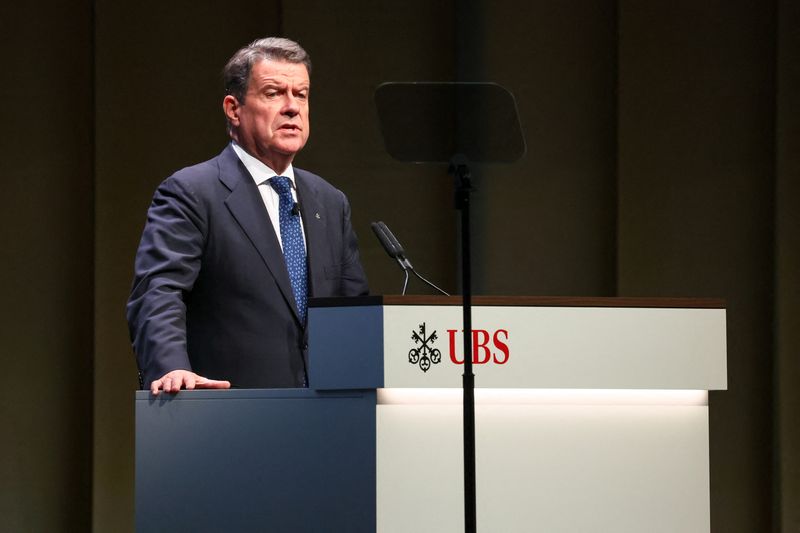
ZURICH (Reuters) – UBS Chair Colm Kelleher warned on Sunday that the Swiss authorities’s plans to strengthen capital necessities for large banks may injury the nation’s place as a monetary centre.
The federal government earlier this yr laid out plans for harder capital necessities for UBS and Switzerland’s three different huge banks in a bid to make the monetary sector extra strong after the crash of Credit score Suisse final yr.
In an article revealed within the Swiss newspaper SonntagsBlick, Kelleher mentioned he agreed with many of the 22 suggestions within the authorities’s report, apart from the proposal for extra stringent capital necessities.
“What I actually have a giant downside with is the rise in capital necessities. It simply does not make sense,” he mentioned concerning the so-called “too-big-to-fail” report.
Particulars of the precise capital necessities are but to emerge, though Finance Minister Karin Keller-Sutter in April mentioned estimates UBS would require one other $15 billion to $25 billion have been “believable”.
In a separate estimate, analysts at Autonomous Analysis mentioned UBS might must retain an extra $10 billion to $15 billion.
Kelleher declined to touch upon figures, however mentioned that extreme capital necessities would injury competitiveness and result in much less beneficial costs on banking merchandise for patrons.
“We must always deal with extra essential points reminiscent of liquidity administration and, above all, the total resolvability of a financial institution,” Kelleher instructed the newspaper.
Swiss banks contribute to its function because the world’s prime monetary centre, with some $2.6 trillion in worldwide belongings beneath administration, in response to a 2021 Deloitte research. Nonetheless, competitors is rising from Luxembourg and particularly Singapore, which has grown quickly in recent times.
UBS – which has a steadiness sheet double the dimensions of annual Swiss financial output – would pose dire dangers for the Swiss financial system if it have been to break down, specialists have warned.
Kelleher downplayed the risks, saying UBS held “considerably extra” capital than comparable banks, whereas the financial institution’s enterprise mannequin – primarily based on wealth administration and the Swiss home market – meant it was low danger.
UBS remained dedicated to Switzerland even when Bern demanded a giant enhance in additional capital, mentioned Kelleher, who has been chair since 2022.
“Though we’re a worldwide financial institution, the center of UBS is our Swissness,” he mentioned, including there was “no query” the lender would give up its house nation.
Nonetheless he warned if the financial institution needed to increase its capital ranges, it might be detrimental for Switzerland.
“If politics forces us to massively enhance our capital, then Switzerland has determined that it now not desires to be a related worldwide monetary centre,” Kelleher mentioned.
“I believe that can’t be within the nation’s curiosity.”
The previous Morgan Stanley government mentioned he was prepared to talk with the federal government on its proposals.
(Reporting by John Revill; Extra reporting by Emma Farge; Modifying by Clelia Oziel)
-

 Markets3 months ago
Markets3 months agoADP Stories Decrease-Than-Anticipated Personal Payroll Progress for June
-

 Markets3 months ago
Markets3 months agoSorry, however retiring ‘comfortably’ on $100K is a fantasy for most individuals. Right here’s why.
-

 Markets3 months ago
Markets3 months agoSouthwest Air adopts 'poison tablet' as activist investor Elliott takes important stake in firm
-

 Markets3 months ago
Markets3 months agoAbove Food Corp. (NASDAQ: ABVE) and Chewy Inc. (NYSE: CHWY) Making Headlines This Week
-

 Markets3 months ago
Markets3 months agoCore Scientific so as to add 15 EH/s by means of Block’s 3nm Bitcoin mining ASICs
-

 Markets3 months ago
Markets3 months agoWarren Buffett is popping 94 subsequent month. Ought to Berkshire traders begin to fear?
-

 Markets3 months ago
Markets3 months agoWhy Rivian Inventory Roared Forward 10% on Friday
-
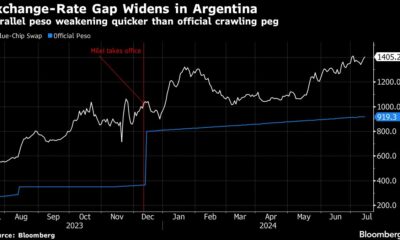
 Markets3 months ago
Markets3 months agoArgentina to Promote {Dollars} In Parallel FX Market, Caputo Says
-

 Markets3 months ago
Markets3 months agoWhy Intel Inventory Popped on Friday
-

 Markets3 months ago
Markets3 months agoMicrosoft in $22 million deal to settle cloud grievance, keep off regulators
-

 Markets3 months ago
Markets3 months agoMorgan Stanley raises worth targets on score companies on constructive outlook
























